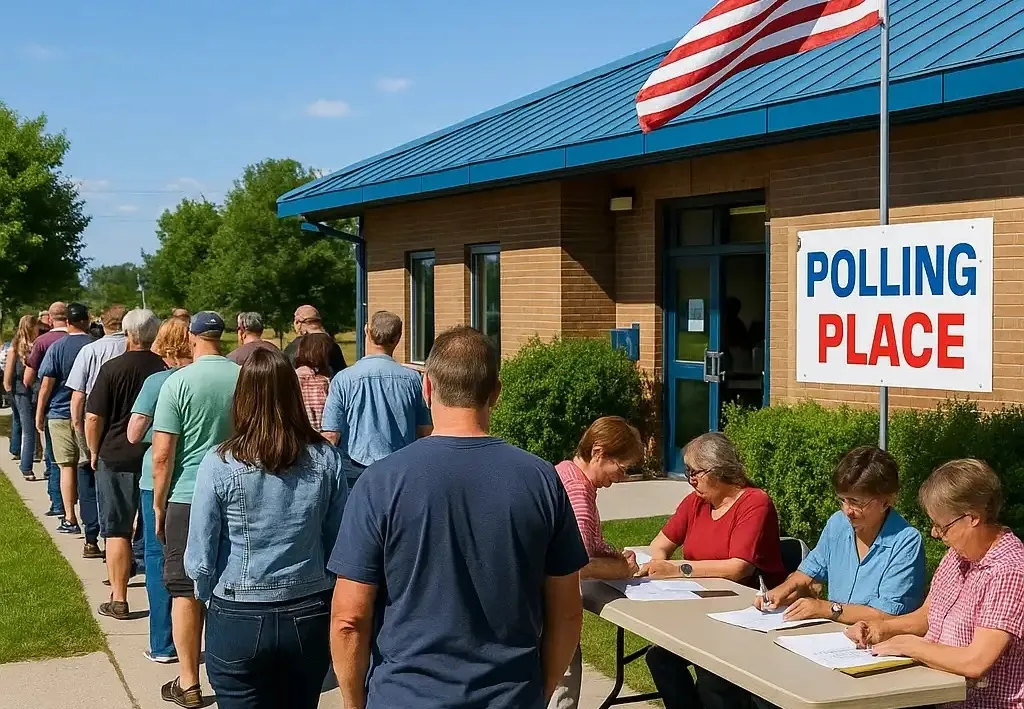While machine errors can be verified with paper ballots and hand counting, the far bigger threat lies in the cracks of our system — where laws are ignored, deadlines are stretched, and registration loopholes are exploited. If we want to restore confidence in our election process, we need to look beyond the machines and address other vulnerabilities; only then will Montanans truly trust the system.
Absentee Voting: Convenience at the Cost of Security
Absentee voting was designed as a convenience for individuals who are unable to vote in person, not standard practice. However, what began as a small percentage of ballots has now become the dominant voting method in Montana, and with this shift, the risks have increased.
Before the pandemic, between 65–73% of Montana voters cast their ballots early or by mail. By 2020, that number skyrocketed to more than 97%. Even in 2024, over 425,000 absentee ballots were returned before Election Day — more than half of all registered voters. When that many votes are cast outside a secure polling place, the integrity of the process hinges on the security of the mail system, the accuracy of voter rolls, and the honesty of everyone involved in handling those ballots.
One obvious flaw is permanent absentee status. Once a voter signs up, they will continue to receive ballots automatically — even if they move, pass away, or become ineligible to vote. And, while officials do maintain voter rolls, errors are inevitable. It’s common sense that absentee status should expire after each election, requiring voters to reapply if they need to vote by mail again.
One election worker in Gallatin County told me she mailed dozens of ballots that were returned undeliverable one election year — a clear sign that ballots are being sent to voters who no longer live at the address on file. When that happens, it’s not just wasted postage; it’s a warning that our system isn’t keeping up with reality.
Another concern is ballot collection—when individuals or organizations return absentee ballots on behalf of others. In 2021, Montana lawmakers passed a law (House Bill 530) to restrict paid third-party ballot collection. A court later struck it down after finding the state had not presented evidence of any fraud tied to those activities. While no widespread fraud was found, the risk of improper handling remains when hundreds of thousands of ballots move outside official supervision. Integrity isn’t about catching fraud after it happens; it’s about designing a system that prevents it from happening at all.
Same-Day Registration: A Recipe for Chaos
Montana’s same-day registration policy allows voters to register and vote on the same day; however, this well-intentioned idea creates some serious problems. On the surface, it appears to expand access, but in reality, it overwhelms election workers and introduces opportunities for mistakes.
In the 2016 presidential election, more than 12,000 Montanans registered to vote and cast their ballots on Election Day. 2020 saw record absentee turnouts — over 8,000 voters registered at the last minute. The result? Long lines, exhausted election workers, and results delayed for hours. When people see lines stretching for hours and results coming late, faith in the process falters.
In Gallatin County, lines of same-day registrants have stretched out the door and around the block, with the final voter processed well past midnight. Election workers have described 14-hour days followed by an additional 30 hours of catch-up work. And because counties cannot release results until everyone in line has voted, the surge of last-minute registrants can delay results by hours—or even days.
It’s simple: voter registration should close at least a week before Election Day. That’s how we give officials time to verify eligibility, prevent errors, and ensure that election night results reflect the will of legal voters — not the chaos of a midnight paperwork rush.
Ballot Delays and Chain-of-Custody Concerns
Absentee overload and same-day registration combine to create a final problem: slow and delayed election results. Montana law allows counties to begin processing absentee ballots the day before the election, but when tens of thousands of ballots arrive on Election Day — and lines of registrants stretch late into the night — counting can’t even begin until hours after polls close.
In 2022, some counties didn’t post any results until after 10:30 PM. Gallatin County once estimated it wouldn’t report final numbers until 3:00 AM. Provisional ballots — many tied to late registrants — can’t be counted until the following Monday. And because Montana accepts overseas and military votes for up to six days after the election, final tallies often aren’t complete for a week.
The longer it takes to count, the more public trust erodes. And the longer it takes for ballots to arrive after Election Day, the more opportunity for mishandling. We should enforce strict deadlines: ballots must arrive by Election Day to be counted, period.
Restoring Confidence Starts With Accountability
Montanans believe in hard work, personal responsibility, and fair play, and we should demand the same from our elections. That means ending permanent absentee status and requiring voters to request mail ballots for each election in which they are eligible to participate. It means closing voter registration a week before Election Day to give election officials the time they need to verify eligibility. And it means enforcing ballot deadlines to protect the integrity of the count.
Our elections are too important to be treated like a casual transaction. Voting should require at least as much verification as buying alcohol — because our freedom depends on it. We can’t afford to let convenience trump confidence or chaos replace order.
Free and fair elections were never meant to be easy. They were intended to be honest. And it’s time Montana got back to that standard.
